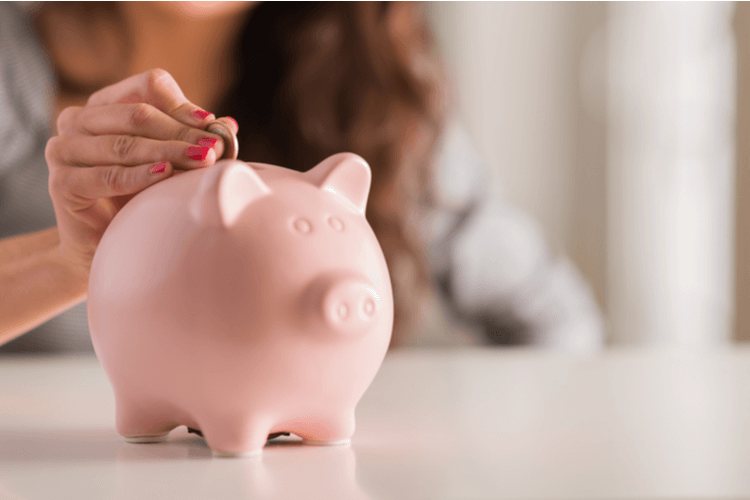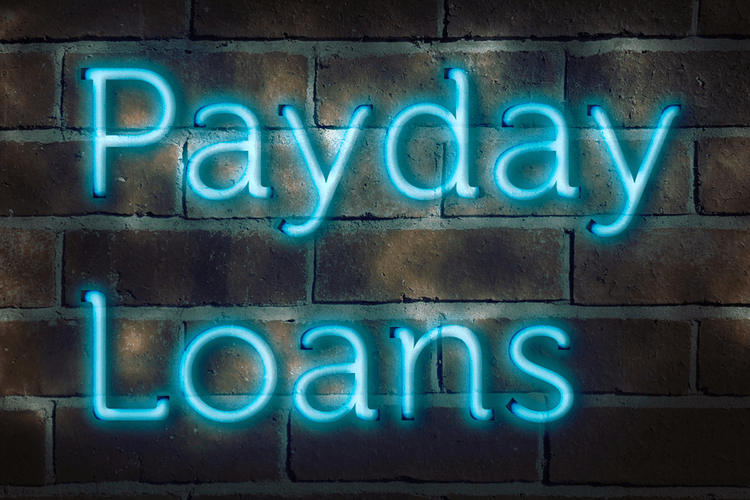
Here's An Easy Way to Save Money Fast: No Spend Challenge
If you search your couch to find change at the end of the month, then you need to get your spending under control.
And here’s an easy way to save money fast – don’t spend any money.
While this may sound like a joke and not a very funny one to boot, there’s an entire community that has formed around what is now known as the No-Spend Challenge.
An Easy Way to Save Money Fast: Don't Spend Money
What Is A No-Spend Challenge?
Exactly what it says: it’s people challenging themselves not to spend any money for a designated amount of time.
Depending on the variation you’ll be trying, you’re either supposed to stick to the “no spend” rule hard and not spend a single dime (even on necessities), or you’re allowed certain expenses – as long as they aren’t considered frivolous (subscriptions, takeout, cigarettes, etc. have to go).
At its core, the No-Spend Challenge is designed to stop you from spending money on things you don’t necessarily need, to cut down on expenses and find an easy way to save money fast. There are multiple variations you could try to do this.
Day-Specific No-Spend Challenge
Day-specific is the most flexible among the No-Spend Challenge types. You choose a certain amount of days in a month and you’re not spending any money on those. Say, you decide to do 10 no-spend days. You can do them consequently – or you can choose a couple of days a week (say Monday and Wednesday) and not spend any money on those while throwing in a few extra days here and there. Or you could do some consequently, and then change it up.
The flexibility makes it an easy access point for those who want an easy way to save money fast.
Week(s) Long No-Spend Challenge
Also, a comparatively easy version of the challenge, is supposed to stop you from spending money for one full week (or more). This one is similar to the first type, but eschews flexibility and makes heavier emphasis on control. The idea is that even if you want something, you should postpone it for later.
This one takes a bit of planning and budgeting beforehand, but it can be the tool you need to find an easy way to save money fast.
Since you’re not allowed to spend money during it, you should be sure your fridge and pantry are stocked and your bills are paid before you take it on.
Month(s) Long No-Spend Challenge
A longer version of the challenge that takes more effort and pre-planning than previous types – but also allows certain expenses, is the month long challenge or longer.
If your challenge lasts for a month, it’s possible not to spend any money at all, as long as your rent and utilities are paid beforehand, and you’ve stocked up on food – but if it goes longer than that, you’re obviously allowed to make your monthly payments, and buy necessities like food, gas, and hygienic supplies.

Year(s) Long No-Spend Challenge
The most extreme version of the challenge that is gaining traction lately is for a year or longer. It’s less of a “no spend” and more “strict budget” challenge. Your monthly necessary expenses are allowed, but everything else is cut down to the minimum. Some do budget in things like “one brunch a week” but things like new clothes, books, tech, skincare products (at least until you’ve used up what you already have) are still prohibited.
Some even go a step further and allow expenses, even necessary ones, only on certain days of the week to fight the spending temptation.
What Makes No-Spend Challenge So Popular?
To put it simply – people are tired of living paycheck to paycheck and looking for an easy way to save money fast. Short-term no spend challenges allows them to meet short-term savings goals easily, ex. funding an emergency fund, helping create a safety cushion that can help them in the future if they ever return to paycheck to paycheck living (most don’t).
What Makes Emergency Fund A Priority?
Financial emergencies are #1 budgets get derailed. If you suddenly have a toothache and need to visit a dentist, your car is making weird noises, or your sewer system is clogging – you can’t postpone dealing with the problem. But if you don’t have an emergency fund, you’re not likely to be able to come up with the money from your budget alone – in this case, you’d need to think about taking out a short-term loan, like a payday loan.
Why A Payday Loan?
A payday loan is possibly the easiest loan to acquire. To put into perspective how straightforward and quick the payday loan application process is: you can start the process online, you only need a couple of documents to apply, and the entire process will last on average between 30 and 45 minutes.
The lenders accommodate all types of incomes and don’t rely on your credit history for approval. So, you can successfully apply and get approved even if your credit score is bad or non-existent altogether.
How Do I Apply For A Kentucky Payday Loan?
- Go to FastPaydayLoansofKentuckyLLC.com and submit the quick cash online form.
- Wait for the store representative to call you and set up a meeting.
- Bring your government-issued ID (you must be over 18), your most recent pay stub, and a blank check from an active checking account in your name to the meeting.
- Wait for the store representative to assess everything and determine if you qualify.
- Get approved and get the cash!
Finding an easy way to save money fast doesn’t seem that simple, but it can be with just a few adjustments to your daily routine. With these changes you can be on your way to saving an emergency fund and beyond. But if an emergency happens before you can start saving a Kentucky payday loan can get you the quick payday loan cash you need, the same day you need it.
Note: The content provided in this article is only for informational purposes, and you should contact your financial advisor about your specific financial situation.